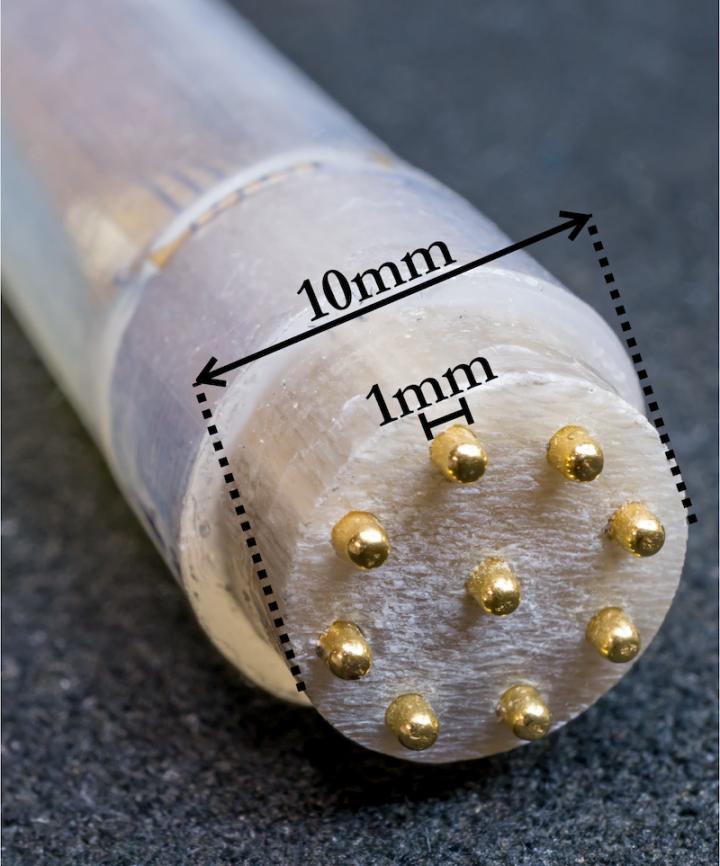
Credit: Dartmouth Engineering
Dartmouth engineers have been awarded a $2.5 million grant from the National Cancer Institute (NCI), part of the National Institutes of Health (NIH), to develop and test a device–a microendoscopic electrical impedance sensing probe– that could be used by surgeons to detect prostate cancer still left in the body during surgery.
Currently, 6.5 to 32 percent of patients undergoing radical prostatectomy each year come out of surgery with positive surgical margins (PSMs), according to a 2014 European Urology study, meaning cancer is still left in the body, increasing the likelihood of disease recurrence. These patients often choose to undergo radiation, hormonal therapy, or chemotherapy to treat the leftover disease, which can lead to physical and/or financial hardship.
“We’re really trying to augment and improve a patient’s quality of life following surgery, and intraoperatively detecting positive surgical margins will help to make that a reality,” said Principal Investigator Ryan Halter, a professor of engineering and of surgery at Dartmouth. “One of the things this approach might allow is for surgeons to be more aggressive in nerve-sparing procedures because they can check that margin after they’ve done the procedure to see if there’s cancer left behind.”
Halter has developed similar technology at his private technical service company, RyTek Medical, and has previously won a grant award for an early prototype of this device. However, the new grant will fund the first large study in humans using an optimized version of the device, which will be miniaturized and integrated within a surgical probe to allow for a better signal and clearer data.
During the first year of the five-year grant period, Halter and the team, which includes Dartmouth engineering and medical colleagues and students, will optimize the device. Starting in the second year, the device will be deployed intraoperatively – meaning during surgery – in a cohort of 200 men. In the operating room, members of the Dartmouth team will conduct real-time data acquisition to identify possible PSMs while a surgeon manipulates the probe.
“Currently, there is no way to test for the presence of surgical margins in the operating room. The ability to identify, and subsequently address, positive surgical margins in real-time will be a game-changing advancement in the surgical treatment of prostate cancer,” said Lawrence Dagrosa, professor of surgery and a specialist in urological oncology at Dartmouth-Hitchcock Medical Center.
Halter believes the device will be especially helpful to patients with larger PSMs, who are more likely to have a reduced quality of life, but notes that the tool may not be able to provide the same level of resolution that can be determined microscopically, which is the approach normally used today. Importantly, microscopic evaluation can only determine PSMs after surgery has concluded, meaning a patient with cancer still left in the body might be encouraged to seek treatments such as chemotherapy.
Should the human studies be successful, Halter foresees conducting larger clinical trials and investigating further applications for the device beyond radical prostatectomy, such as for kidney, breast, and brain surgery.
###
In addition to Halter and Dagrosa, key members of the Dartmouth team include Dartmouth Engineering Professors Kofi Odame and Ethan Murphy, and Geisel School of Medicine Professors Saeed Hassanpour, Eugene Demidenko, and Jason Pettus.
Media Contact
Julie Bonette
[email protected]
Original Source
https:/




